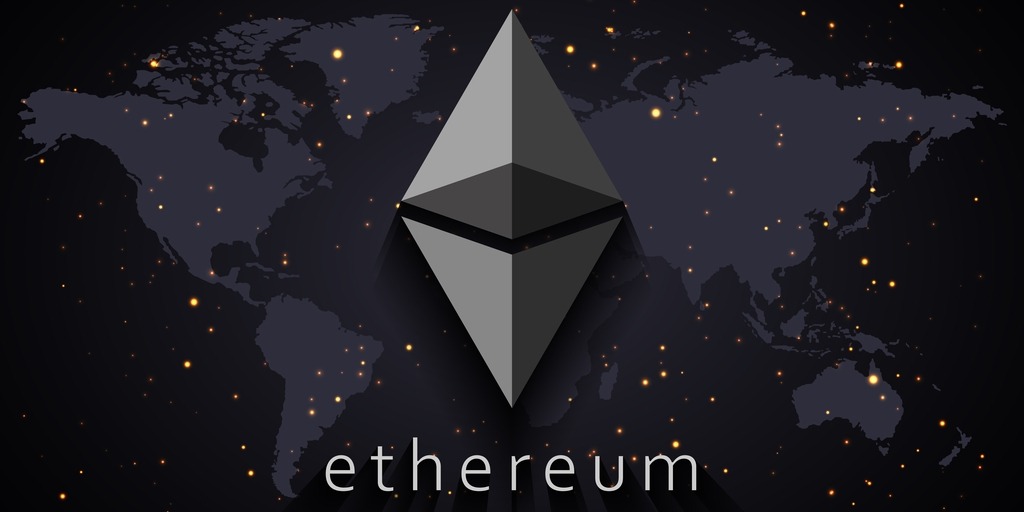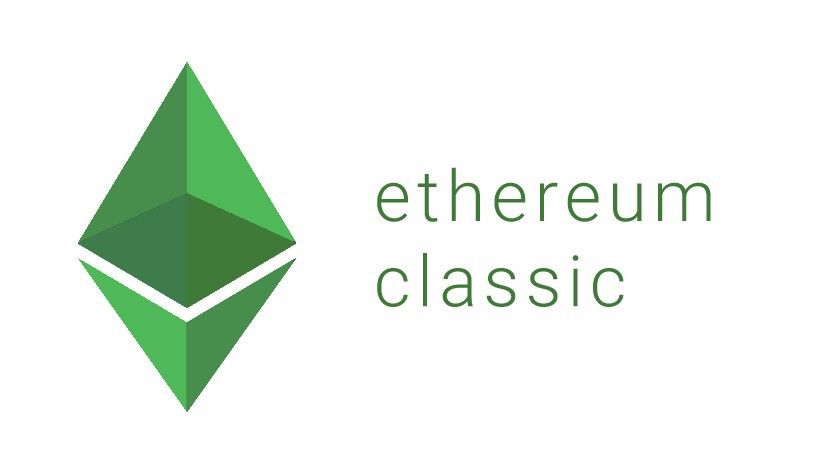Intriguing Ways Will Ether ETFs Approvals Impact the Broader Cryptocurrency Market Landscape In 2024
The long-awaited approval of Ether (ETH) exchange-traded funds (ETFs) in 2024 has sent shockwaves through the cryptocurrency industry. This regulatory green light not only offers a new avenue for investors to gain exposure to Ethereum, but also has the potential to trigger a domino effect, impacting the broader cryptocurrency market landscape in profound ways.
This article explores the potential ramifications of Ether ETFs, analyzing their influence on investor behavior, market volatility, regulatory frameworks, and the overall trajectory of the cryptocurrency ecosystem.
Ether ETFs in 2024:
 The year 2024 has witnessed a significant development in the cryptocurrency landscape – the potential approval of Ether (ETH) Exchange-Traded Funds (ETFs). This has sparked immense interest among both traditional investors and those already familiar with the cryptocurrency world. Here’s a deep dive into everything you need to know about Ether ETFs in 2024:
The year 2024 has witnessed a significant development in the cryptocurrency landscape – the potential approval of Ether (ETH) Exchange-Traded Funds (ETFs). This has sparked immense interest among both traditional investors and those already familiar with the cryptocurrency world. Here’s a deep dive into everything you need to know about Ether ETFs in 2024:
What are Ether ETFs?
Ether ETFs are investment vehicles similar to traditional ETFs that track the price of Ether (ETH), the native token of the Ethereum blockchain. Investors can buy and sell shares of these ETFs on a stock exchange, gaining exposure to the price movements of Ether without directly owning the cryptocurrency itself.
Why is the Approval of Ether ETFs Significant?
The potential approval of Ether ETFs holds several key advantages:
-
Accessibility for Mainstream Investors: Ether ETFs offer a familiar and regulated investment avenue for mainstream investors who may be hesitant to navigate cryptocurrency exchanges or manage wallets. This can significantly increase participation in the Ethereum ecosystem.
-
Reduced Volatility: Since ETFs typically hold a basket of assets, they can offer a smoother investment experience compared to directly owning Ether, which can be quite volatile.
-
Enhanced Security and Regulation: Ether ETFs would be subject to established financial regulations, potentially offering greater security and peace of mind for investors compared to the often-unregulated cryptocurrency exchanges.
-
Potential for Increased Liquidity: The arrival of Ether ETFs could attract more institutional investors to the Ethereum ecosystem, leading to increased liquidity and potentially more stable pricing for Ether.
Current Status of Ether ETF Approval (as of May 31, 2024):
-
No Official Approval Yet: It’s important to note that as of today, May 31, 2024, there hasn’t been any official approval of Ether ETFs by the U.S. Securities and Exchange Commission (SEC).
-
Positive Developments: However, there have been positive developments indicating potential approval in the near future. In May 2024, the SEC approved several rule changes submitted by major exchanges like Nasdaq, CBOE, and NYSE, allowing them to list Ether ETFs. This is a significant step forward, suggesting the SEC may be more open to Ether ETFs compared to previous years.
What to Consider Before Investing in Ether ETFs (Once Approved):
-
Understand the Underlying Asset: It’s crucial to research the Ethereum network and its future prospects before investing in Ether ETFs. Understand the potential benefits and risks associated with the technology and its applications.
-
ETF Structure and Fees: Not all Ether ETFs may be created equal. Research the specific structure of the ETF, the underlying assets it holds (if any besides Ether), and the associated fees before investing.
-
Regulatory Landscape: The regulatory environment surrounding cryptocurrency and Ether ETFs is still evolving. Stay informed about any regulatory changes that could impact your investment.
-
Volatility and Risk Tolerance: While ETFs may offer some volatility reduction, Ether remains a volatile asset. Ensure your investment aligns with your risk tolerance.
Beyond Approval: The Future of Ether ETFs
The potential approval of Ether ETFs marks a pivotal moment for both the cryptocurrency and traditional financial worlds. However, it’s just the beginning of the story:
-
Competition and Innovation: Several investment firms are likely to launch Ether ETFs, potentially leading to competition and innovation in the product offerings.
-
Regulatory Clarity: Clear and consistent regulations from the SEC will be crucial for fostering long-term investor confidence and the overall growth of the Ether ETF market.
-
Impact on the Ethereum Ecosystem: The success of Ether ETFs will be intertwined with the growth and adoption of the Ethereum network. A thriving ecosystem with real-world use cases will benefit both Ether and its ETF derivatives.
Ether ETFs hold immense promise for bridging the gap between traditional finance and the innovative world of Web3. However, it’s crucial to approach these investments with knowledge, understanding the underlying asset, and considering your risk tolerance. As the regulatory landscape evolves and the Ethereum ecosystem matures, Ether ETFs have the potential to become a powerful tool for investors seeking exposure to the future of decentralized technologies. Stay informed, conduct thorough research, and make informed decisions to navigate this exciting new frontier in the financial landscape.
Also, read – Are Intriguing Ether ETFs A Welcoming Change In 2024: Boon Or Bane for the Crypto Ethos?
How will Ether ETFs impact the crypto market?
 Increased Accessibility and Investor Confidence
Increased Accessibility and Investor Confidence
One of the most significant impacts of Ether ETFs will be their role in increasing accessibility for mainstream investors. By offering a familiar investment vehicle traded on traditional stock exchanges, Ether ETFs eliminate the need for complex cryptocurrency exchanges and private wallet management. This newfound ease of access is likely to attract a new wave of investors, particularly those previously hesitant to navigate the uncharted territory of cryptocurrencies.
Furthermore, the regulatory approval of Ether ETFs serves as a stamp of legitimacy for the cryptocurrency market. This can boost investor confidence, leading to increased investment in not only Ether but also other established cryptocurrencies with strong fundamentals.
Potential for Increased Volatility
While increased investor participation can be beneficial, it can also contribute to higher market volatility. The influx of new capital, particularly from institutional investors unfamiliar with the inherent volatility of cryptocurrencies, could lead to sharper price swings in the short term. This highlights the importance of investor education and responsible investment practices, particularly for those new to the cryptocurrency space.
The introduction of Ether ETFs might also impact the correlation between Bitcoin and other cryptocurrencies. Traditionally, Bitcoin’s price movements have had a significant influence on the broader market. However, with Ether ETFs offering a more accessible alternative, the correlation might weaken, leading to a more diversified and less Bitcoin-centric market landscape.
Regulatory Scrutiny and Framework Evolution
The approval of Ether ETFs is likely to trigger increased regulatory scrutiny of the entire cryptocurrency space. Regulators may focus on aspects like exchange operations, custody solutions for underlying assets, and investor protection measures associated with Ether ETFs. This increased oversight can be seen as a positive development, fostering greater transparency and potentially leading to a more robust regulatory framework for the cryptocurrency industry.
The regulatory landscape surrounding cryptocurrencies is still evolving, and the success of Ether ETFs could pave the way for the approval of similar products for other major cryptocurrencies. This broader acceptance by regulators could ultimately lead to a more formalized and stable environment for the entire cryptocurrency market.
A Catalyst for Innovation and Competition
The arrival of Ether ETFs will undoubtedly spark innovation within the cryptocurrency ecosystem. Existing cryptocurrency exchanges and custodians will likely enhance their offerings to remain competitive in the face of traditional financial institutions entering the space. Additionally, the success of Ether ETFs could incentivize the development of similar products for other promising blockchain projects, fostering further growth and diversification within the cryptocurrency market.
This increased competition could benefit investors by driving down fees associated with cryptocurrency investments and promoting the development of user-friendly platforms and services. Ultimately, a more competitive landscape can lead to a more mature and sustainable cryptocurrency ecosystem.
Conclusion: A Complex Dance of Opportunity and Challenge – The Year of Ether ETFs
The year 2024 etched itself in history as a turning point for the cryptocurrency landscape. The potential approval of Ether (ETH) Exchange-Traded Funds (ETFs) represents a complex dance of opportunity and challenge, ushering in a new era for both traditional finance and the burgeoning world of Web3. While the allure of increased accessibility and potential growth is undeniable, navigating this intricate dance requires a nuanced understanding of the potential benefits and inherent risks.
A Gateway to the Future: Unveiling Opportunities
The arrival of Ether ETFs unlocks a treasure trove of opportunities for both investors and the Ethereum ecosystem:
-
Democratization of Decentralization: Ether ETFs act as a bridge, allowing mainstream investors, previously hesitant or unfamiliar with cryptocurrency exchanges and wallets, to participate in the growth of the Ethereum network. This broader investor base can fuel innovation and accelerate the adoption of Web3 technologies.
-
Enhanced Liquidity and Stability: The influx of institutional capital through Ether ETFs has the potential to increase liquidity within the Ethereum market. This can lead to smoother price movements and potentially reduce the volatility often associated with cryptocurrencies like Ether.
-
A Catalyst for Innovation: The success of Ether ETFs can act as a catalyst for further innovation within the Ethereum ecosystem. Increased investor interest can spur the development of user-friendly applications and dApps (decentralized applications), solidifying the utility and real-world value proposition of Web3.
-
Legitimization and Trust: The regulatory oversight associated with Ether ETFs fosters a sense of legitimacy and trust within the broader financial landscape. This can attract a wider range of investors who may have been wary of the often-unregulated cryptocurrency space.
A Measured Approach: Acknowledging the Challenges
However, the potential of Ether ETFs is not without its challenges that require careful consideration:
-
Regulatory Uncertainty: The regulatory environment surrounding cryptocurrency and Ether ETFs is still nascent and evolving. Unclear or restrictive regulations can hinder the growth of the market and discourage investor participation.
-
Security Concerns: The potential for hacking and security breaches remains a concern in the cryptocurrency space. Robust security measures and transparent communication from developers and ETF providers are crucial for building trust.
-
Underlying Asset Volatility: While ETFs may offer some mitigation of volatility, Ether itself remains a dynamic asset. Investors need to be aware of the inherent risks associated with the cryptocurrency market and ensure their investment strategy aligns with their risk tolerance.
-
Focus on Utility, Not Speculation: The long-term success of Ether ETFs shouldn’t be driven by short-term speculative hype. Investors should focus on the transformative potential of Web3 technologies and the real-world value they can offer, not just potential price appreciation.
A Collaborative Future: The Road Ahead
The potential approval of Ether ETFs marks the beginning of a collaborative journey for the future of finance:
-
Investor Education: A concerted effort towards investor education is crucial. Initiatives that demystify Web3 concepts, the role of Ether, and the intricacies of Ether ETFs will empower investors to make informed decisions.
-
Open-Source Innovation: The core strength of Web3 lies in its open-source nature. Continued collaboration and innovation from developers worldwide will be vital for the advancement of the Ethereum network and the overall Web3 ecosystem.
-
Responsible Institutional Involvement: The responsible participation of institutional investors can provide much-needed stability and legitimacy to the Web3 space. However, their focus should be on the long-term potential of Web3, not short-term gains.
-
Dialogue Between Regulators and Innovators: A continuous dialogue between regulators and innovators is essential. Clear and consistent regulations that foster innovation while protecting investors will be crucial for the long-term success of Ether ETFs and the broader Web3 landscape.
The Final Step: A Measured Waltz into the Future
The approval of Ether ETFs in 2024 represents a pivotal moment, not a guaranteed revolution. By acknowledging the opportunities, recognizing the challenges, and fostering a collaborative spirit, all stakeholders can ensure this complex dance leads to a future where Ether ETFs act as a catalyst for the growth and adoption of Web3 technologies, ultimately reshaping the financial landscape for the better. As with any waltz, a measured approach, clear communication, and a focus on long-term value creation will be the key to a successful and sustainable future for both Ether ETFs and the Web3 ecosystem they represent.
Stay informed with daily updates from Blockchain Magazine on Google News. Click here to follow us and mark as favorite: [Blockchain Magazine on Google News].
Get Blockchain Insights In Inbox
Stay ahead of the curve with expert analysis and market updates.
latest from tech
Disclaimer: Any post shared by a third-party agency are sponsored and Blockchain Magazine has no views on any such posts. The views and opinions expressed in this post are those of the clients and do not necessarily reflect the official policy or position of Blockchain Magazine. The information provided in this post is for informational purposes only and should not be considered as financial, investment, or professional advice. Blockchain Magazine does not endorse or promote any specific products, services, or companies mentioned in this posts. Readers are encouraged to conduct their own research and consult with a qualified professional before making any financial decisions. The featured image used is just a creative depiction of the title and it does not intend to hurt sentiments of any person or institution. If it hurts anyone sentiments, please do not hesitate to reach out to Blockchain Magazine.

 Bitcoin
Bitcoin  Ethereum
Ethereum  XRP
XRP  Tether
Tether  Solana
Solana  Dogecoin
Dogecoin  USDC
USDC  Cardano
Cardano  Lido Staked Ether
Lido Staked Ether  TRON
TRON  Chainlink
Chainlink  Avalanche
Avalanche  Wrapped Bitcoin
Wrapped Bitcoin  Wrapped stETH
Wrapped stETH  Sui
Sui  Stellar
Stellar  Toncoin
Toncoin  Hedera
Hedera  Shiba Inu
Shiba Inu  WETH
WETH  Polkadot
Polkadot  LEO Token
LEO Token  Litecoin
Litecoin  Bitcoin Cash
Bitcoin Cash  Bitget Token
Bitget Token  Hyperliquid
Hyperliquid  Uniswap
Uniswap  Official Trump
Official Trump  Wrapped eETH
Wrapped eETH  USDS
USDS  Pepe
Pepe  NEAR Protocol
NEAR Protocol  Ethena USDe
Ethena USDe  Aave
Aave  Aptos
Aptos  Internet Computer
Internet Computer  Ondo
Ondo  Ethereum Classic
Ethereum Classic  WhiteBIT Coin
WhiteBIT Coin  Monero
Monero  Mantle
Mantle  Cronos
Cronos  POL (ex-MATIC)
POL (ex-MATIC)  Render
Render  Dai
Dai  MANTRA
MANTRA  Algorand
Algorand  Layer One X
Layer One X 




